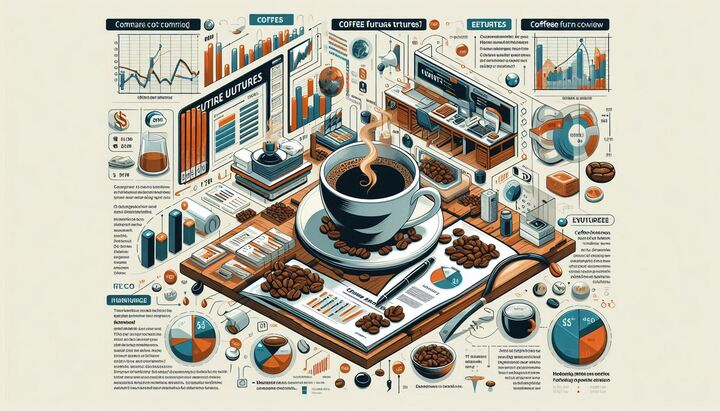A Beginner’s Guide to Coffee Futures: What Every Trader Should Know
الجسم
Coffee is not just a beloved beverage; it’s also one of the most actively traded commodities in the world. For those looking to enter the world of coffee futures trading, understanding the basics can be overwhelming. This guide will break down essential concepts, key terms, effective strategies, and risks every beginner should know.
What Are Coffee Futures?
Coffee futures are contracts that allow traders to buy or sell coffee at a predetermined price on a specified future date. These contracts are standardized agreements traded on commodity exchanges, such as the New York Mercantile Exchange (NYMEX) or the Intercontinental Exchange (ICE). Futures trading helps manage price risks and enables traders to speculate on price movements.
Key Terms to Know
-
Contract: A standardized agreement to buy or sell a specific quantity of coffee (typically 37,500 pounds) at a set price and date.
-
Margin: The amount of capital required to open and maintain a futures position. It acts as a security deposit and can vary depending on market conditions.
-
Leverage: Using borrowed capital to increase the potential return of an investment. Futures trading typically involves high leverage, allowing traders to control larger positions with a smaller amount of capital.
-
Speculation: Buying and selling contracts with the expectation of profiting from price fluctuations. Speculators do not intend to take physical delivery of the coffee.
-
Hedging: A risk management strategy used by producers and consumers to protect against adverse price movements. For example, a coffee farmer may sell futures contracts to lock in a price for their crop before harvest.
Strategies for Coffee Futures Trading
-
Fundamental Analysis: Understanding the factors that affect coffee prices, such as weather conditions, crop yields, and geopolitical events, is crucial. Monitoring reports from organizations like the International Coffee Organization (ICO) can provide valuable insights.
-
Technical Analysis: Analyzing price charts and trends can help identify potential entry and exit points. Traders often use indicators such as moving averages, Relative Strength Index (RSI), and support/resistance levels.
-
Diversification: As a beginner, consider diversifying your trading portfolio by including other commodities or asset classes. This strategy helps mitigate risks associated with the volatility of coffee futures.
-
Start Small: Begin with a small investment to gain experience and understand market dynamics without risking significant capital. As you become more comfortable, you can gradually increase your trading size.
Risks Involved in Coffee Futures Trading
-
Market Volatility: Coffee prices can be highly volatile due to factors such as weather changes, global supply and demand fluctuations, and market sentiment. This volatility can lead to significant gains or losses.
-
Leverage Risks: While leverage can amplify profits, it can also magnify losses. Traders should be cautious and only use leverage they can afford to lose.
-
Emotional Trading: Emotional decision-making can lead to impulsive trades and significant losses. Developing a disciplined trading plan and sticking to it can help mitigate this risk.
-
Regulatory Changes: Changes in regulations or policies can impact futures trading. Staying informed about industry developments and government regulations is essential.
Conclusion
Coffee futures trading can be a rewarding venture for those willing to invest the time to learn and understand the market. By familiarizing yourself with key terms, strategies, and risks, you can navigate the complexities of coffee trading with confidence. Remember to start small, practice disciplined trading, and continuously educate yourself to enhance your trading skills. As you embark on this journey, keep in mind the importance of patience and perseverance in the world of futures trading. Happy trading!
This beginner's guide provides a comprehensive overview of coffee futures trading, equipping newcomers with the knowledge they need to get started in this exciting market.










تعليقات